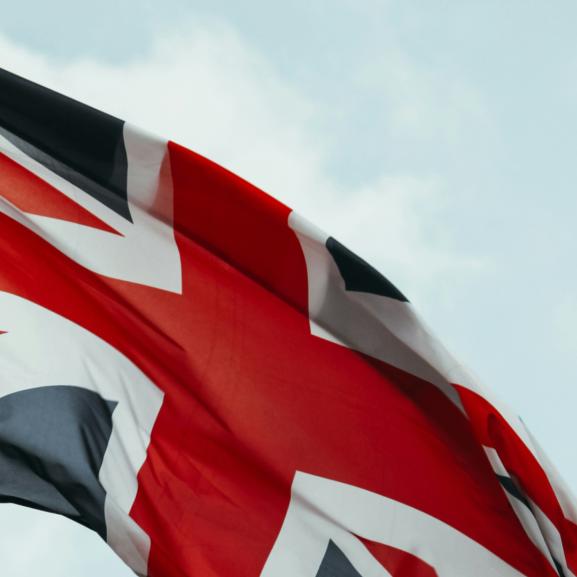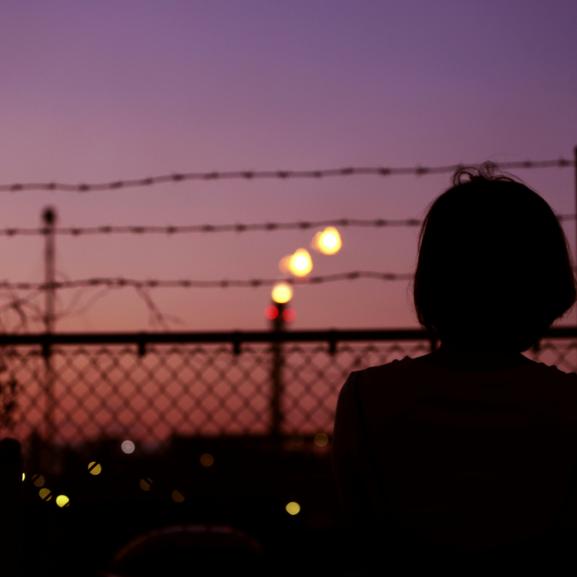Members of our Women's Group explain why they had to flee
Ahlam Souidi is a senior community worker at Freedom from Torture. She tells the story of the Women's Group and some of those who are helped by it.
One woman fled her home country under threat of execution by her government, another because her own family beat her savagely, a third because political opponents sent masked men with guns to stalk her and her family.
We gather around the table. Soon the smell of coffee fills the room as more women take their seats. Everyone here, at some point in their lives, has been impacted by torture.
All of the 20 or so women have made life-threatening journeys to reach the UK. And most of them have made these journeys with their children. Of the 100 million people who have been displaced across the world, over half are women and children.
Women like Gulan* who suffered torture at the hands of her own family in her home in Iraq after they discovered that her new partner belonged to a different religion. They locked her up and beat her so severely that they broke some of her bones. Like many women in the group, Gulan would no doubt have died had she not managed to escape.
While she eventually managed to flee, it took her and her two children five months to reach the UK. Her youngest child was only five at the time. They travelled by lorry, boat, and by foot. She told me that there were so many times that they almost died, and I knew that she had already said enough to find the memories overwhelming.
Sosin, who fled Iran with her partner and children, knows that if she ever tried to return home, she’d be arrested immediately, jailed for a long time, and probably executed.
Zarin*, another member of the group, is more open. Like many women, she was tortured simply because of the politics of her husband. Before she fled her home country, her family were followed everywhere by masked men with guns. It was relentless, with death threats and intimidation lasting months.
When Zarin made the decision to leave, she had to travel with her three children without her husband. Smugglers helped her escape her home country, but further into the journey they locked Zarin and her children up.
She was terrified but would have done anything to protect her children. Zarin said that, as a woman, she was totally powerless. The smugglers had ultimate control. It was weeks until they let her and her children go free.
Targeted by Iran’s repressive regime
After the death of Mahsa Ahmini in Iran following her arrest for allegedly not wearing her hijab properly, Sosin* was seen taking part in a demonstration for women’s rights and she had to flee. Her family was targeted with violence and intimidation, and a friend who had also been at the demonstration disappeared. No one knows where she is.
Sosin knows she can now never go home. Ever since she was a young girl, she has always wanted to raise her voice for women’s rights, and she was punished physically and mentally for standing up against a repressive regime.
Sosin, who fled Iran with her partner and children, knows that if she ever tried to return home, she’d be arrested immediately, jailed for a long time, and probably executed.
Helping women feel less lonely
The group, called Women Together, was formed to create a space for both women who are still undergoing their therapeutic journey at Freedom from Torture and those who’ve finished using our services.
The sessions, which are held weekly at our Glasgow centre, are a positive space where people take part in workshops, talk, and share recipes. The group supports the women to feel stronger, make friends, and feel less lonely in a country where they often don’t know anyone or even speak the language.
For many women in the group, all they’ve ever known is restriction. They come from countries where those in charge don’t want women to work, or have any choice about their own lives – they have no freedom.
Not just refugees
Because of this, we make sure that the group also teaches the women vital skills for integrating into Scottish life and, most importantly, to learn about their rights here in the UK. What’s really difficult is that we know that there are minimal opportunities for women survivors of torture to access a dedicated space like this. So many women across the UK will not have the support from vital services that they so desperately need.
Our members are not just survivors of torture or refugees. They are artists, thinkers, chefs, writers, and storytellers. These are the types of things that are stripped away when they are made to take up the main label of ‘refugee’.
From my work with survivors, I know that being physically safe and far away from danger is sometimes not enough. People continue to seek and look to build lasting, meaningful connections in their new lives.
While the group’s main aim is to create an environment where individuals feel safe and valued, we are also a campaigning group. It is important for members like Gulan, Sosin, and Zarin, and all the others to tell their stories and talk about the issues that continue to affect them and their families. It reminds me of the phrase by Pablo Neruda: “You can cut all the flowers, but you cannot keep spring from coming.”
Power in their hands
While I loosely organise the sessions and provide a variety of resources, including learning opportunities, wellbeing and educative programmes, and outdoor experiences such as group hikes, I do not see myself as the leader.
The members themselves are empowered to take the group in whatever direction they choose. After being disempowered for so long, it is important that the power to choose is firmly put back in their hands. These women are the experts.
We need to acknowledge that violence against women and girls not only still exists but is increasing. It is distressing to think that, even here in Scotland, these women are still not completely safe.
There must be more done by our leaders to protect not just refugee women but women from all backgrounds. We need meaningful change.
*All names have been changed to protect their identity.
Article first published The Scotsman





